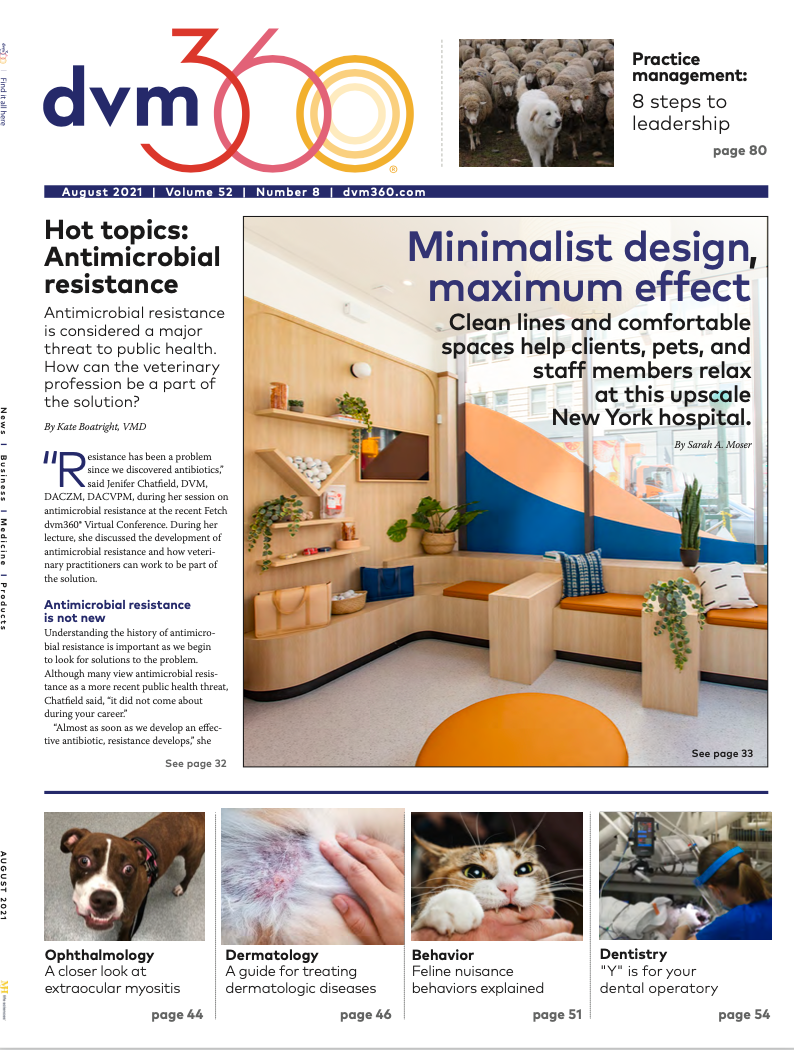Zoetis donates over 11,000 COVID-19 vaccines to high-risk zoo animals
The vaccine was distributed to over 70 different zoos and dozens of animal welfare organizations to help preserve the health and well-being of zoo animals.
To continue the tremendous strides being made amid the ongoing COVID-19 pandemic, Zoetis has graciously donated more than 11,000 doses of its experimental COVID-19 vaccine to safeguard the health of over 100 mammalian species.
The vaccine deployment follows the company’s response to a request made in January by the San Diego Zoo confirming COVID-19 cases in the gorillas at its San Diego Zoo Safari Park. Among the first to receive the shipment and 2 doses were tigers, black bears, grizzly bears, mountain lions, and ferrets from the Oakland Zoo in Northern California.
“We are proud that our innovative research and development work and vaccine donations can help veterinary professionals within the zoo community continue to provide a high standard of care to the primates, big cats, and many other species they care for and reduce the risk of COVID-19,” says Mike McFarland, DVM, DABVP, chief medical officer at Zoetis, in a company release.
The vaccine received authorization for experimental use on a case-by-case basis by the United States Department of Agriculture (USDA) and appropriate state veterinarians. Once approved, it was then distributed to nearly 70 zoos and dozens of conservatories, sanctuaries, academic institutions, and government organizations located in 27 states.
With its headquarters located in Kalamazoo, Michigan, the Zoetis research and development team channeled its decades of experience in developing other coronavirus vaccines for domesticated animals to curate the COVID-19 vaccine. Though the antigen is the same seen in human vaccines, vaccines for animals focus on the carrier (adjuvant) that is used, thus the combination of both the antigen and carrier guarantees the safety for animals that receive it.
Additionally, Zoetis has also begun developing feline and canine-specific real-time Polymerase Chain Reaction (PCR) diagnostic tests to better detect SARS-CoV-2.
“When the first dog was infected with COVID-19 in Hong Kong last year, we immediately began to work on a vaccine that could be used in domestic animals, and in eight months we completed our initial safety studies, which we presented at the World One Health Congress last year. While thankfully a COVID-19 vaccine is not needed in pets or livestock at this time, we are proud that our work can help zoo animals at risk of COVID-19,” says Mahesh Kumar, senior VP of global biologics at Zoetis.
“More than ever before, the COVID-19 pandemic put a spotlight on the important connection between animal health and human health, and we continue to monitor for emerging infectious diseases that can impact animals as well as people,” he adds.
To learn more about Zoetis and its mission, go here.
